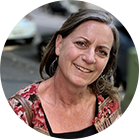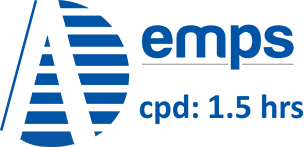Join AIDR, and the Collaborating4Inclusion project team as we invite expert speakers to explore how government, emergency services, people with disability and the services that support them are working together to put person-centered and capability-focused approaches to DIDRR into action.
Webinar three: Actions that service providers can take on DIDRR
Community, health and disability service providers (e.g., paid service providers and volunteers) are an untapped local community asset with potential to increase safety and well-being for people with disability in emergencies. Harnessing this potential is a complex challenge.
This webinar will share how Australian service providers are taking action on Disability Inclusive Disaster Risk Reduction (DIDRR) in diverse service delivery contexts with different service delivery models, funding arrangements, and workforce capacity. We will share effective practices for linking personal emergency preparedness of people with disability (and other high-risk groups) to organisational preparedness and service continuity of the services that support them.
We will share case studies that showcase current progress, specific actions, implementation challenges and how they are being tackled, and what needs to happen next.
Guest speakers
Michelle Villeneuve, Associate Professor & Deputy Director, Centre for Disability Research and Policy, The University of Sydney
 Associate Professor Michelle Villeneuve is the Deputy Director at The University of Sydney Impact Centre for Disability Research and Policy. Michelle leads an international program of research that addresses inequities that people with disability experience in everyday living and situations of natural hazard disaster and other emergencies. Michelle is leading the development of Disability Inclusive Disaster Risk Reduction (DIDRR) in Australia - bringing together health, community, disability and emergency services sectors to establish cross-sector DIDRR policy and practice.
Associate Professor Michelle Villeneuve is the Deputy Director at The University of Sydney Impact Centre for Disability Research and Policy. Michelle leads an international program of research that addresses inequities that people with disability experience in everyday living and situations of natural hazard disaster and other emergencies. Michelle is leading the development of Disability Inclusive Disaster Risk Reduction (DIDRR) in Australia - bringing together health, community, disability and emergency services sectors to establish cross-sector DIDRR policy and practice.
Michelle has over 20 years of experience working in regions of conflict and natural hazard disaster to develop community-led services and re-build opportunities for people with disability, including those acquired by human conflict and natural disaster.
Her partnership research keeps people with disability and their support needs at the centre of development and change.
Emma Birch, Regional Manager, Clinical, Rocky Bay
 Emma is an experienced health professional with a demonstrated history of working in the hospital, health care and disability industry. Skilled in leading and delivering Allied Health Services, Project Management, Clinical Service Design/Planning and Health Education. Strong community and social services professional with a postgraduates in leadership, management and public health.
Emma is an experienced health professional with a demonstrated history of working in the hospital, health care and disability industry. Skilled in leading and delivering Allied Health Services, Project Management, Clinical Service Design/Planning and Health Education. Strong community and social services professional with a postgraduates in leadership, management and public health.
Parvathi Subramanium, Research Assistant, University of Sydney
 Parvathi is an occupational therapist with experience in paediatric practice across a range of contexts including rural and metropolitan communities, educational and private practice settings.
Parvathi is an occupational therapist with experience in paediatric practice across a range of contexts including rural and metropolitan communities, educational and private practice settings.
John Fenech, Bushfire Recovery Manager, Community Development, St Vincent de Paul
 John is a long time community development and program management professional who has worked broadly across Asia, the Pacific and now domestically, for organisations including World Vision, ChildFund Australia and the United Nations Development Program. He is passionate about creating space and time for communities to come together in order to elevate their voice, harness their skills and abilities, and realise their vision.
John is a long time community development and program management professional who has worked broadly across Asia, the Pacific and now domestically, for organisations including World Vision, ChildFund Australia and the United Nations Development Program. He is passionate about creating space and time for communities to come together in order to elevate their voice, harness their skills and abilities, and realise their vision.
Heidi Chappelow, Project Officer - Emergency Management, Hunter Local Land Services
 Heidi Chappelow is a co-founding member of P-CEP Connect Hunter. She directly experienced the life changing value of peer support while recovering from a significant injury. Heidi has since completed a Master of Disaster Resilience and Sustainable Development at University of Newcastle. Now, part of her role as Project Officer - Emergency Management at Hunter Local Land Services includes linking people and agencies in rural and isolated areas of the Hunter Region to inclusive, peer-led emergency planning.
Heidi Chappelow is a co-founding member of P-CEP Connect Hunter. She directly experienced the life changing value of peer support while recovering from a significant injury. Heidi has since completed a Master of Disaster Resilience and Sustainable Development at University of Newcastle. Now, part of her role as Project Officer - Emergency Management at Hunter Local Land Services includes linking people and agencies in rural and isolated areas of the Hunter Region to inclusive, peer-led emergency planning.
Raelene Bock, Co-founder, PCEP Connect Hunter
 Raelene is co-founder of PCEP Connect Hunter and is passionate about peer-led P-CEP and facilitating safe peer spaces. As a single mum, with four kids and complex disability, using the P-CEP tools has become a vital part of navigating everyday planning and being prepared for the small and large emergencies of life.
Raelene is co-founder of PCEP Connect Hunter and is passionate about peer-led P-CEP and facilitating safe peer spaces. As a single mum, with four kids and complex disability, using the P-CEP tools has become a vital part of navigating everyday planning and being prepared for the small and large emergencies of life.
Aimee Parker
Community Connector, Singleton Neighbourhood Centre
 Aimee is the ‘Community Connector’ at Singleton Neighbourhood Centre. Her vision for her community (Singleton LGA) is; ‘local needs, sustained by local resources’. She aims to progress this vision by supporting collaborative pilot initiatives, that effectively utilise shared resources and foster sustainable local connections. Aimee fundamentally believes that a ‘resilient’ community, starts with building individual capacity to achieve relevant and meaningful outcomes.
Aimee is the ‘Community Connector’ at Singleton Neighbourhood Centre. Her vision for her community (Singleton LGA) is; ‘local needs, sustained by local resources’. She aims to progress this vision by supporting collaborative pilot initiatives, that effectively utilise shared resources and foster sustainable local connections. Aimee fundamentally believes that a ‘resilient’ community, starts with building individual capacity to achieve relevant and meaningful outcomes.
Aimee has 15years experience in specialised ‘inclusion’ roles (particularly Disability), spanning across NSW, WA and QLD (including Rocky Bay!). She has completed her Graduate Diploma in Policy and Applied Social Research at Macquarie University (in addition to Bach of Social Science at Newcastle University), increasing her professional capacity to develop a more tailored approach to service delivery.
Webinar host
Margaret Moreton, Executive Director, Australian Institute of Disaster Resilience
About Collaborating4Inclusion
The Collaborating4Inclusion research team works in partnership with government and emergency services, people with disability, and the services that support them to co-produce collaborative action so that nobody is left behind when disasters strike.
The Leave Nobody Behind project has been working across New South Wales and Nationally to develop research, policy, and practice that builds cross-sector community capacity to ensure that nobody is left behind when disasters strike. The final tranche in the project will be the development of a national framework for cross-sector collaborative action on DIDRR, supported and enabled by co-produced tools that everyone can use.



 This webinar has been approved for EMPS Continuing Professional Development (CPD) points. The webinar has been allocated 1.5 hours of CPD.
This webinar has been approved for EMPS Continuing Professional Development (CPD) points. The webinar has been allocated 1.5 hours of CPD.